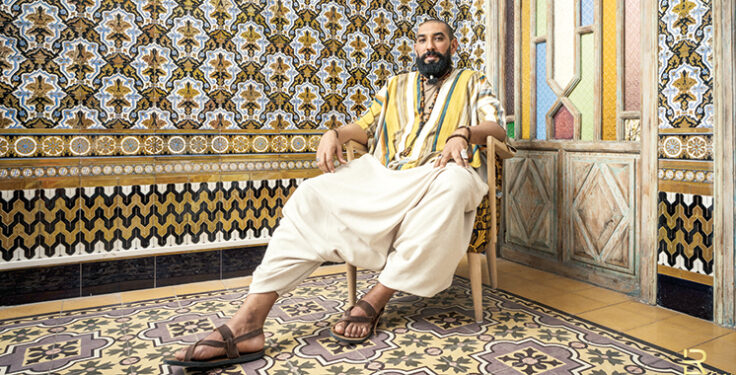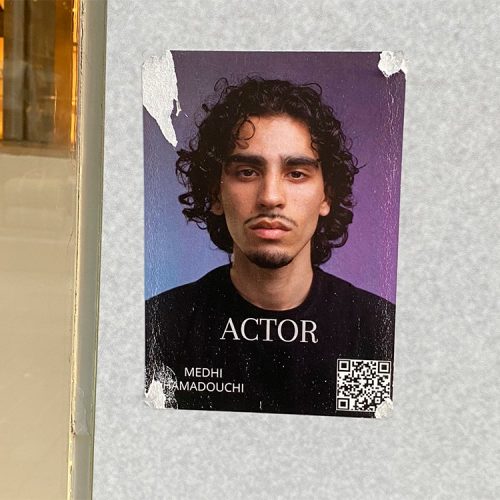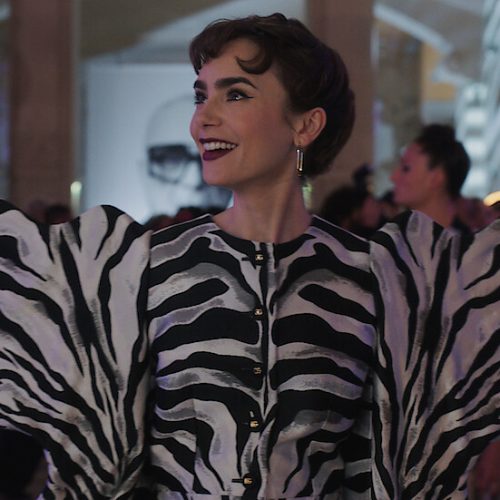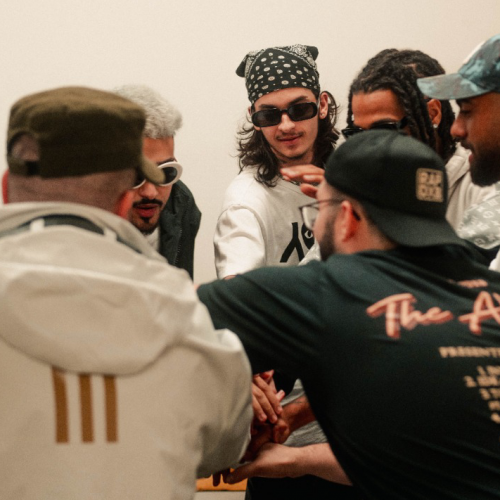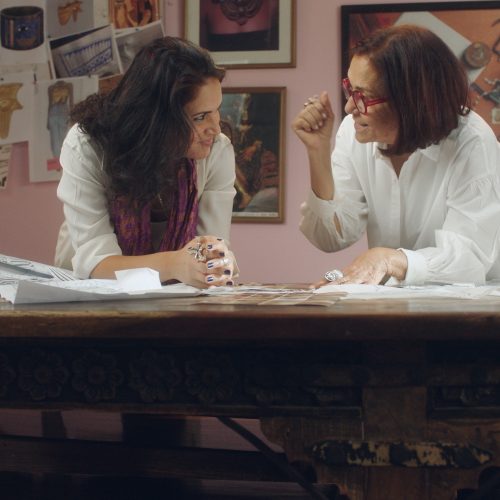I remember the first day of the MOGA festival being a bit of a slow burner. Although the afternoon was soundtracked by head-bopping poolside beats and mellow sets, party-goers, who knew they had to take it easy to be able to sustain three intense days of sea, beverages, and sun, were still far from reaching the real peak of their experience as they were slowly accommodating to the Sofitel’s privatized patch of yard and touring round the site’s pristine facilities. It was a steady come up, ticket-holders were finally getting to walk into one of the most anticipated events the Kingdom has to offer, while on our side, we were able to sit down, with some of our favorite artists on the line-up.
Last week, the Fashion and Art Moroccan Association flew us over to the Blue City of Essaouira to witness what one of Morocco’s most acclaimed electronic music festivals looked like. For three days, we wandered around the Kingdom’s south to party to some of the industry’s most esteemed and revered names. Tangibly feeling the excitement that was shared by attendees from the shows that were about to unfold, we managed to catch DJ and music producer Abderrahman Elhad, better known as Mr. ID, in between his busy schedule, for a quick tête-à-tête.
The Casablanca-native and former basketball player is widely considered as one of the scene’s most prominent figures, gathering not far from 100,000 monthly listeners on Spotify alone and over 30,000 followers on his official Instagram page. Translating his Arab-African identity into techno sounds and fast-speed beats, Mr. ID’s productions are often regarded as chockfull of culture and a melting pot of inspiration that have materialized through the release of three EPs on top of 13 singles since 2015. More than just an average artist, Elhad’s palette beams feel-good energy to all those that are enchanted by it — and that’s exactly what he was about to do at MOGA in a handful of hours.
But before the producer took to the stage, he opened up with MILLE about how he got his start in music, his musical style, and what we can expect from him next.
What titles would you say are most-fitting to describe what you do?
I’m a musician, a DJ, and a producer that comes from Morocco. Short but straight to the point.
How did you make your way into the world of music?
I started off as a basketball player. Whoever says basketball immediately starts thinking of hip-hop culture and rap. It eventually lead me onto the path of New Disco, a genre that carries more punchy and faster-paced rhythms to it, which opened the gates of electronic music to me.
How would you describe your style?
I would say that I mostly work with Moroccan and African-based sounds and add an electronic touch to them in order to make my music as accessible as possible regardless of your age or where you come from.
Why is it important for you to have that Moroccan and African element in your music?
Because it’s my culture and that’s what makes it so rich. They’re my roots and I’m so lucky to be provided with this background from birth. It’s where I draw a lot of my inspiration from. With that being said, I’m also influenced by my close circle, especially my family.
I’m surrounded by so much creativity and creativeness. There are sounds and melodies that can barely be found anywhere else in the world. I feel so blessed to be right in the middle of this all.
Going back to hip hop and rap, the past few years have seen the explosion of the scene in Morocco. Do you think that the Moroccan electronic music industry could follow in those steps?
Absolutely! There’s a lot of potential here, and we can see it. It may take time but the time will definitely come. In the past six years, the growth has been extraordinary. We’re seeing more and more DJs and producers make their way onto international charts so I’m adamant that the future is bright.
Do you find the same amount of talent all around the region?
Obviously, yes… We can’t talk about the “Arab Electronic Scene” without mentioning Shkoun or Acid Arab. Our region has nothing to pale in front of. Anyone who comes to the region, from Morocco or elsewhere, would go crazy the moment they start studying our grooves, rhythms, and measures. All it takes is for us to export it properly for everyone to recognize the richness of our industry.
With that being said though, our issue to putting Morocco on the map is visas. Artists struggle to travel, which obviously is detrimental for our culture and makes the process of taking our music abroad harder. It’s a real obstacle, however, thankfully enough platforms like MOGA are allies as they respect artists, manage to gather more than half of the scene all in one place for three days, in front of a multicultural crowd, alongside international, which can open the door to endless opportunities.
How do you help the next generation of DJs navigate the scene?
I already produce other artists through my label El Baraka Family. We help them manage their careers, make sure that their releases are up to the industry’s highest standards, all while sharing my experience and expertise with them. It’s super important for me as when I was making my first few steps, I remember people lending their hand over and advising me on which way is the best for me to follow and that’s something that I want to give back to those that could be in a similar situation as I was in a couple of years ago.
It’s all about sharing, there’s no point in gatekeeping, we’re on a collective mission to the top so the more we are the better it is.
What’s in the pipeline for you in the time to come?
I’m currently working on a clothing brand. My current fits are made by my mom and apparently people like them so, why not share it? If I can share that on top of the music I already share with my fanbase, I’d be the happiest man around. I can’t tell you more about the name but I’ll definitely keep you in the loop.





